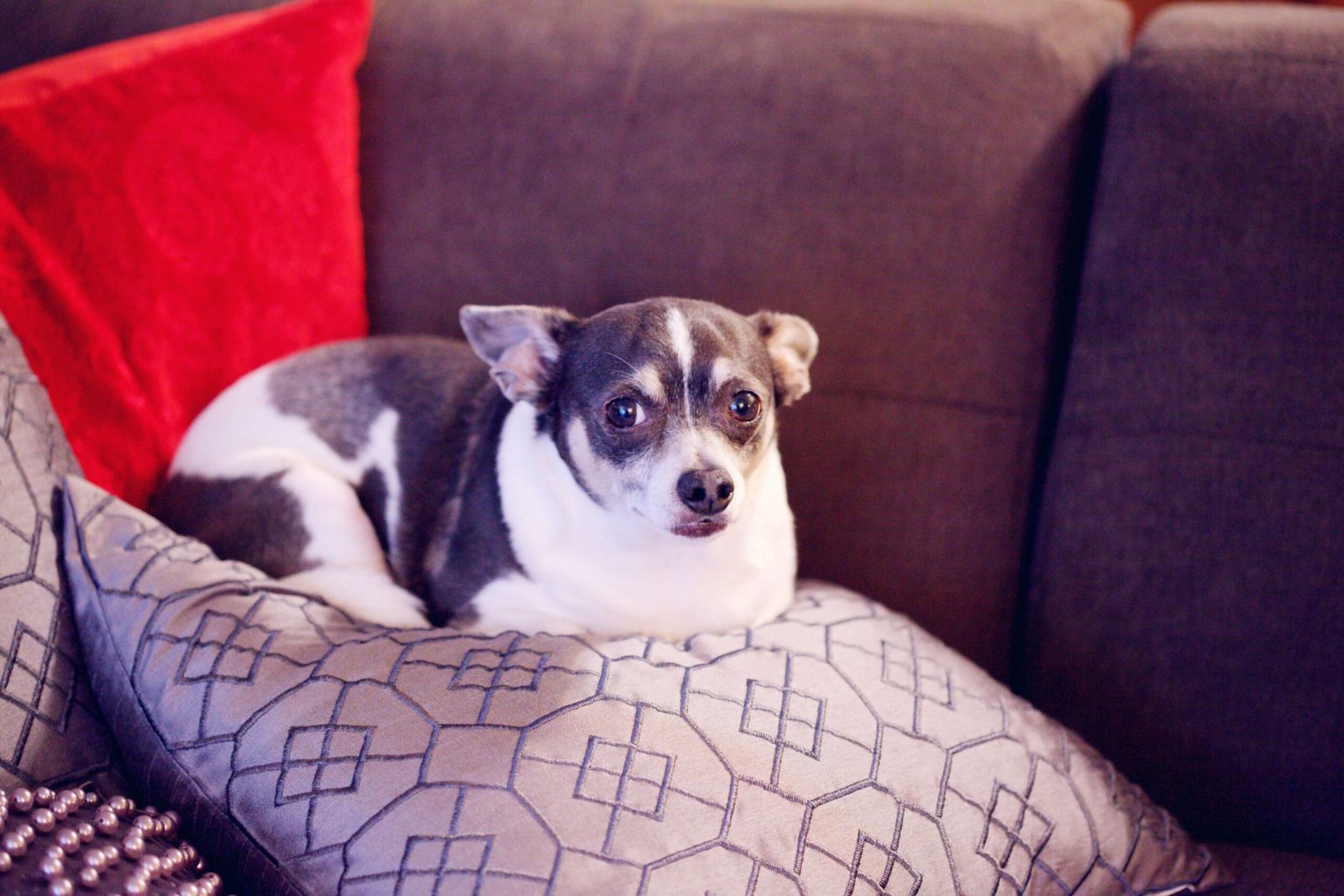Why Does Dog Poop Turn White? Unraveling the Mystery
If you’ve ever noticed your dog’s poop turning white after being left outside for a while, you’re not alone. This phenomenon might seem strange or even alarming at first glance, but it’s actually quite common and has a scientific explanation. Understanding why dog poop turns white can provide valuable insights into your pet’s diet, digestion, and overall health.
In this blog post, we’ll explore the reasons behind this occurrence, discuss whether it’s normal or a cause for concern, and offer practical advice to ensure your dog’s digestive system stays in top shape. Whether you’re a curious pet owner or simply want to keep a closer eye on your furry friend’s well-being, this guide will answer all your questions about white dog poop.
Why Does Dog Poop Turn White? Key Factors
Dog poop turning white is typically a natural process influenced by environmental factors and the composition of the waste itself. Here are the most common reasons why this happens:
Drying out in the sun : When dog poop is exposed to sunlight and air, moisture evaporates, leaving behind a chalky, white residue.
High mineral content : A diet rich in minerals like calcium or phosphorus can lead to harder stools that dry out and turn white more quickly.
Presence of undigested materials : Certain foods or supplements may not fully break down during digestion, contributing to a whiter appearance as the poop dries.
Environmental conditions : Hot, dry climates accelerate the drying process, causing poop to turn white faster than in humid areas.
Normal bacterial breakdown : As bacteria break down organic matter in the poop, the remaining material can take on a lighter color over time.
While white dog poop is often harmless, it’s important to monitor your dog’s overall health and diet to rule out any underlying issues.
Is White Dog Poop a Cause for Concern? Signs to Watch For
While the whitening of dog poop is usually a natural process, certain signs may indicate an underlying health issue. Here’s how to determine if your dog’s poop requires further investigation:
Consistently hard stools : If your dog’s poop is always dry and crumbly, it could signal dehydration or dietary imbalances.
Excessive white residue : An unusually high amount of white powder or chalkiness might suggest too much calcium in the diet.
Changes in frequency or consistency : Diarrhea, constipation, or irregular bowel movements alongside white poop may point to digestive problems.
Visible undigested food : Large chunks of undigested food in the stool could indicate poor nutrient absorption or an inappropriate diet.
Other symptoms : Vomiting, lethargy, or weight loss accompanying white poop should prompt a visit to the vet.
By paying attention to these signs, you can identify potential health concerns early and take steps to address them before they escalate.
Check this guide 👉Is It Illegal to Put Dog Poop in the Garbage? Best 7 Tips!
Check this guide 👉Why Is There Mucus in My Dogs Poop? Best 7 Expert Tips!
Check this guide 👉Fly Larvae in Dog Poop: Best 7 Health Tips!

Natural Causes of White Dog Poop | Potential Health Concerns |
|---|---|
Sunlight and air exposure | Dehydration or lack of water intake |
High mineral content in diet | Excessive calcium supplementation |
Dry climate conditions | Poor nutrient absorption |
Bacterial breakdown over time | Digestive disorders |
Normal evaporation process | Underlying medical conditions |
How to Maintain Healthy Digestion in Dogs
Ensuring your dog’s digestive system functions properly is key to preventing unusual changes in their poop. Here are some tips to promote healthy digestion and minimize concerns about white dog poop:
Provide a balanced diet : Feed your dog high-quality food with the right balance of proteins, fats, and carbohydrates to support optimal digestion.
Monitor calcium intake : Avoid overloading your dog’s diet with calcium-rich foods or supplements unless advised by a veterinarian.
Ensure proper hydration : Always provide fresh, clean water to prevent dehydration and maintain healthy stool consistency.
Incorporate fiber : Adding fiber-rich foods like pumpkin or sweet potatoes can aid digestion and regulate bowel movements.
Schedule regular vet check-ups : Routine veterinary visits help catch potential health issues early and ensure your dog’s diet meets their needs.
By following these guidelines, you can support your dog’s digestive health and reduce the likelihood of unusual poop changes.
Adjusting Your Dog’s Diet to Prevent White Poop
Sometimes, dietary adjustments can help prevent your dog’s poop from turning white too quickly. Here are some practical steps to consider when modifying your dog’s diet:
Evaluate protein sources : High-quality proteins like chicken, turkey, or fish are easier to digest and less likely to cause abnormalities in stool.
Limit processed treats : Avoid giving your dog excessive processed snacks that may contain artificial additives or fillers.
Introduce probiotics : Probiotic supplements or foods like yogurt can promote a healthy gut microbiome and improve digestion.
Avoid sudden dietary changes : Gradually transition your dog to new foods to prevent digestive upset and irregular stools.
Consult your vet for personalized advice : Every dog is unique, so your vet can recommend dietary changes tailored to your pet’s specific needs.
Making thoughtful dietary adjustments can significantly impact your dog’s digestive health and reduce the occurrence of white poop.
Environmental Factors That Affect Dog Poop
While diet plays a significant role in your dog’s poop consistency and appearance, environmental factors can also influence how quickly it turns white. Understanding these external elements can help you manage your dog’s waste more effectively. Here are some key environmental factors to consider:
Sun exposure : Direct sunlight accelerates the drying process, causing poop to turn white faster in sunny areas.
Humidity levels : Low humidity speeds up evaporation, while high humidity slows it down, affecting how quickly poop dries out.
Temperature fluctuations : Hot weather dries out poop more rapidly, while cold weather may preserve its original color for longer.
Surface type : Poop left on porous surfaces like soil may dry out slower compared to non-porous surfaces like concrete.
Wind and airflow : Increased airflow in open spaces can speed up the drying process, contributing to whiter poop.
By considering these environmental factors, you can better understand why your dog’s poop changes color and take steps to manage it accordingly.
Signs of a Healthy Digestive System in Dogs
A healthy digestive system is essential for your dog’s overall well-being, and their poop can provide valuable clues about their gut health. Here are some signs that indicate your dog’s digestive system is functioning properly:
Consistent stool color : Healthy dog poop is typically brown and uniform in color, without unusual white residues or discoloration.
Regular bowel movements : Your dog should have consistent, predictable bowel movements without frequent diarrhea or constipation.
Normal stool consistency : The poop should be firm but not too hard, and it shouldn’t crumble excessively or appear overly dry.
No visible undigested food : Fully digested food indicates your dog’s body is absorbing nutrients effectively.
Lack of foul odors : While all poop has a smell, excessively strong or unusual odors may signal digestive issues.
By monitoring these signs, you can ensure your dog’s digestive system remains healthy and address any concerns before they escalate.
Common Misconceptions About White Dog Poop
There are several misconceptions about why dog poop turns white, and understanding the truth behind these myths can help you make informed decisions about your dog’s health. Here are some common misunderstandings:
Myth: White poop always means a health problem : In reality, white poop is often just a result of natural drying and isn’t inherently harmful.
Myth: All dietary supplements cause white poop : Only excessive mineral supplements, like calcium, are likely to contribute to this phenomenon.
Myth: White poop is caused by worms or parasites : While parasites can affect poop, they don’t directly cause it to turn white.
Myth: White poop is a sign of poor-quality food : High-quality food can still lead to white poop if environmental factors are at play.
Myth: You should ignore white poop : While it’s often harmless, consistently white or abnormal poop should still be monitored for underlying issues.
By dispelling these misconceptions, you can focus on the real causes of white dog poop and take appropriate action when necessary.
FAQ
Is it normal for dog poop to turn white after a few days?
Yes, it’s normal for dog poop to turn white as it dries out due to environmental factors like sunlight and air exposure.
Can white dog poop indicate a health problem?
While it’s usually harmless, consistently hard or overly white poop may signal dehydration, dietary imbalances, or digestive issues.
Should I be worried if my dog’s poop is white and crumbly?
Crumbly poop may indicate dehydration or excessive mineral intake, so it’s worth monitoring your dog’s water consumption and diet.
Does my dog’s diet affect the color of their poop?
Yes, certain foods, supplements, or minerals can influence the texture and color of your dog’s poop as it dries.
How can I prevent my dog’s poop from turning white too quickly?
Ensuring proper hydration, feeding a balanced diet, and avoiding excessive mineral supplements can help maintain normal stool consistency.
Keeping a Close Eye on Your Dog’s Health
Understanding why dog poop turns white is just one piece of the puzzle when it comes to monitoring your dog’s health. While this phenomenon is often a natural part of the drying process, staying informed about your dog’s diet, hydration, and overall well-being ensures you can address any potential issues promptly. By providing a balanced diet, maintaining proper hydration, and consulting your veterinarian when needed, you can keep your furry companion happy, healthy, and thriving. Remember, your dog’s poop can tell you a lot about their health—so don’t hesitate to investigate further if something seems off. With the right care and attention, you’ll ensure your dog enjoys a long and comfortable life by your side.
Do Cats Have Taste Buds? Best 7 Expert Tips! – Discover how cats experience flavors and why their taste is so unique.
Do Dogs Have Taste Buds? Best 7 Expert Tips! – Discover how dogs experience taste, their preferences, and what it means for their diet and health.
Can Cats Taste Sweet? Best 7 Expert Tips! – Discover why cats can’t taste sweetness, how it affects their diet, and tips to keep them healthy and happy.
Can Dogs Taste Sweet? Best 7 Expert Tips! – Discover how dogs perceive sweetness, which foods are safe, and tips to manage their sweet cravings responsibly.





